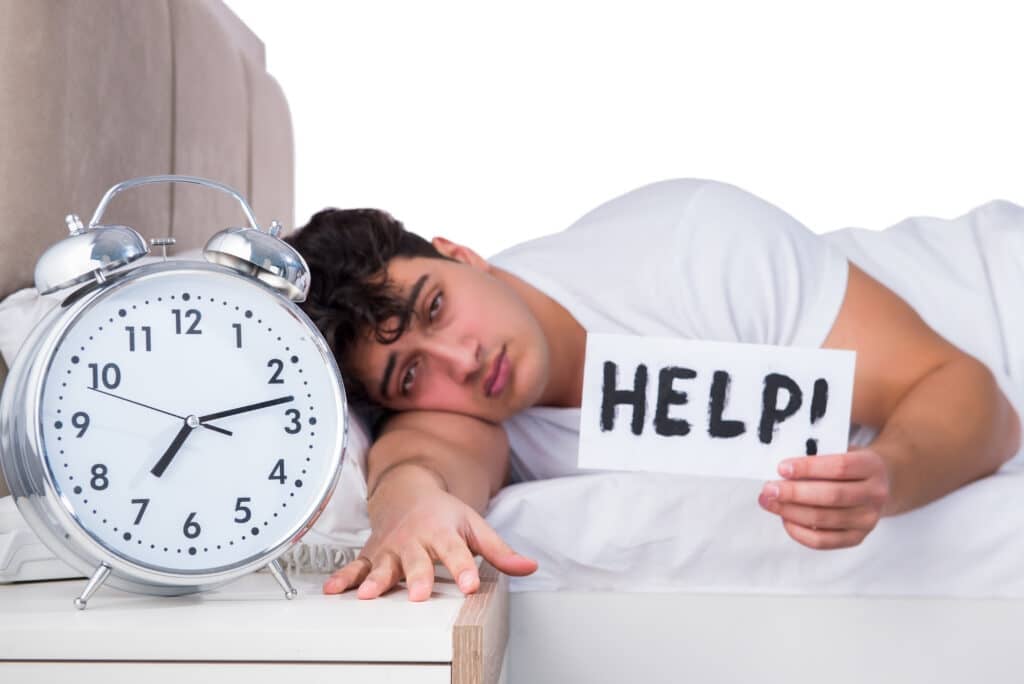Sleep Talk Blog, Health & Wellbeing
Insomnia and B12 deficiency - what does the science say?
Insomnia and B12 deficiency - what does the science say?
Vitamin B12 is necessary for the production of the sleep hormone melatonin. Melatonin regulates our circadian rhythms (how we respond to light and dark), and a B12 deficiency can disrupt these rhythms, causing sleep problems.
Insomnia and melatonin deficiency are directly linked, so there is a relationship between B12 deficiency and insomnia. However, vitamin B12 as a sleep aid to treat insomnia is not well studied, although it has helped many people.
What the science says
When it comes to insomnia, clinical and scientific research has linked low melatonin levels to increasing insomnia frequency.
A review of clinical studies (2019) found that melatonin supplementation can improve primary and comorbid insomnia in adults.
This study published in 2008 found that vitamin B12 has a direct influence on melatonin, making it a promising sleep aid candidate.
In 2021, this study with a small sample size of young female adults found that people with higher vitamin B12 have better quality sleep.
However, no extensive sample size studies have used vitamin B12 to increase melatonin levels as a sleeping aid to treat insomnia, so a direct link between B12 and insomnia is not established, making it only a “promising candidate.”
What is melatonin?
When we discuss vitamin B12, we always include melatonin because melatonin production relies on B12. But what exactly is melatonin?
Melatonin is a hormone that occurs naturally in the body, and it controls our sleep patterns, regulating the sleep and wake cycle known as the circadian rhythm.

Melatonin medication is prescribed to people with delayed sleep-wake phase disorder (DSWPD) but not insomnia. No clinical studies back melatonin medication for insomnia, so it is considered experimental.
Is a B12 deficiency causing my insomnia?
While a B12 deficiency can cause insomnia, many other potential causes need exploring before you make your mind up.
Here are some of the common causes of insomnia:
- Stress
- Depression
- Anxiety
- Poor sleeping habits
- Poor diet
- Physical illness and pain
- Neurological disorders
- Overstimulation (e.g., caffeine)
For example, three-quarters of depressed people have insomnia symptoms, and people with anxiety are more likely to have insomnia symptoms.
If you are not anxious or depressed and physically healthy, a vitamin B12 deficiency could be behind your insomnia. The best way to find out is with blood tests.
Blood tests for vitamin B12
If you have insomnia, blood tests will reveal if you have a vitamin B12 deficiency, and this will help you narrow down potential causes.
After consulting them about your sleep problems, you can request blood tests with your GP (after consulting your sleep problems) or online from a reputable private provider.
Blood tests will check for vitamin B12 and folate deficiency, and you can also get blood tests that provide an early indicator of B12 deficiency.
What to do if you have a B12 deficiency
You can buy vitamin B12 capsules (Cyanocobalamin) over-the-counter from reputable vendors. The recommended daily amount for adults is 2.4mg.
Oral vitamin B12 supplements take around two weeks to start working. You can reduce this time to a few days with hydroxocobalamin injections.
If you don’t want to take supplements, you can find high levels of B12 naturally in a variety of foods. Here are a few foods to try:
- Beef, liver, chicken
- Fish, shellfish
- Fortified breakfast cereals
- Yoghurt and cheese
- Eggs
- Nutritional yeast (vegan)
- Marmite (vegan)
- Almond milk
- (vegan)

Other ways to beat insomnia
- Read a book for half an hour to tire your eyes, ease your thoughts and take your mind to another plane.
- Do strength training an hour before bedtime to release the molecule adenosine, which causes drowsiness.
- Upgrade your mattress to improve bedtime comfort (this is particularly important if you toss and turn a lot).
- Avoid food and drink with caffeine six hours before bedtime - this study found that caffeine interrupts sleep up to six hours before bedtime.
Good luck in your efforts to beat insomnia!


